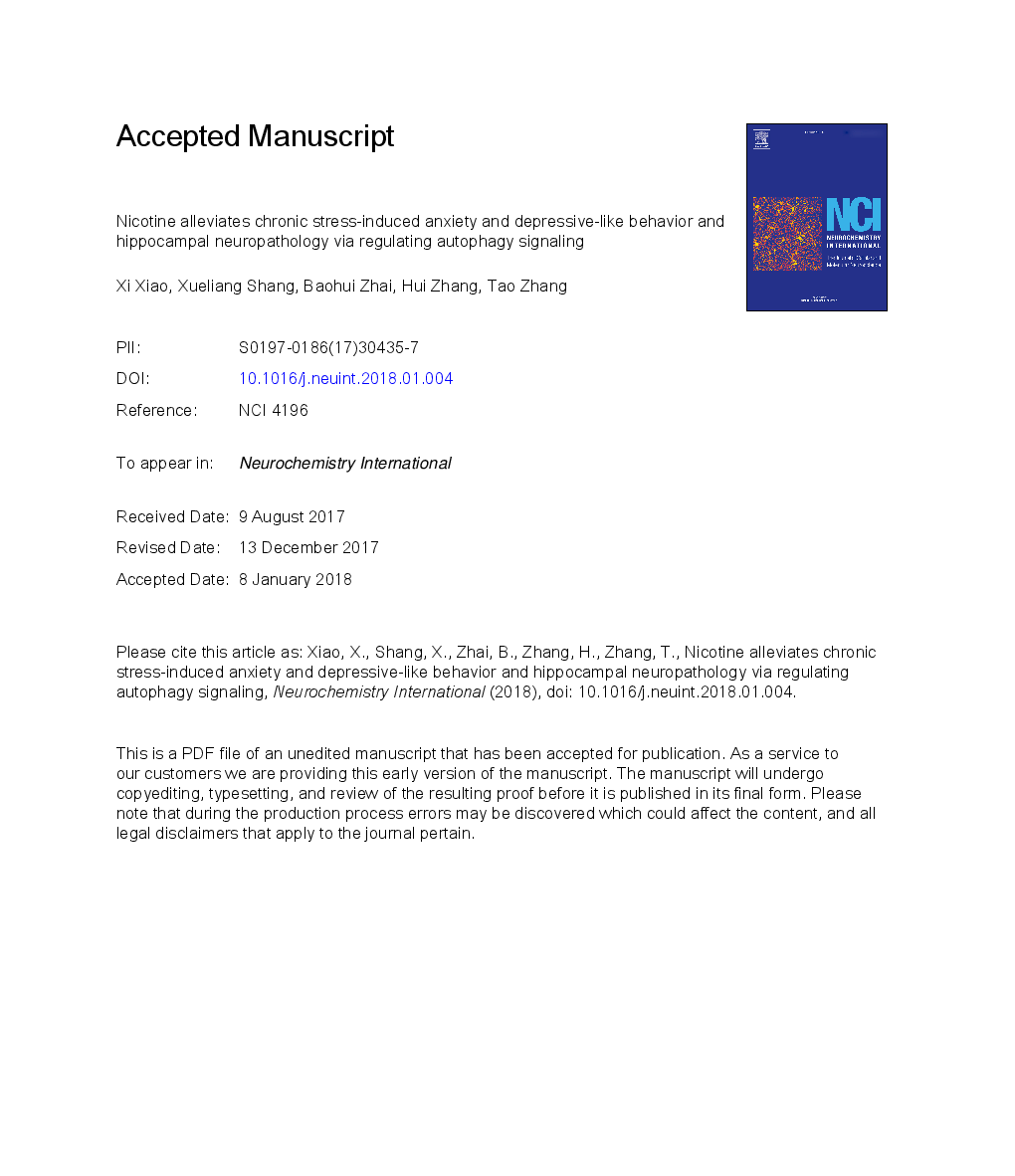ترجمه فارسی عنوان مقاله
نیکوتین موجب کاهش اضطراب ناشی از استرس مزمن و رفتارهای افسردگی و نوروپاتولوژی هیپوکامپ از طریق تنظیم زنگ هشدار خودکار
عنوان انگلیسی
Nicotine alleviates chronic stress-induced anxiety and depressive-like behavior and hippocampal neuropathology via regulating autophagy signaling
| کد مقاله | سال انتشار | تعداد صفحات مقاله انگلیسی |
|---|---|---|
| 154852 | 2018 | 44 صفحه PDF |
منبع

Publisher : Elsevier - Science Direct (الزویر - ساینس دایرکت)
Journal : Neurochemistry International, Volume 114, March 2018, Pages 58-70

